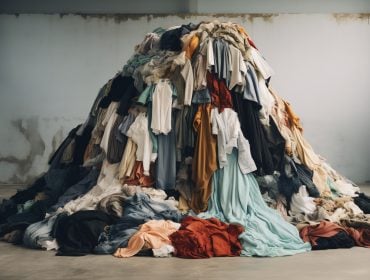Different Types of STD Risks at Poolsides
When you lounge by the pool, staying savvy about your health matters. You might wonder if swimsuits or poolside activities pose STD risks. Sure, close contact and damp swimwear create chances for some germs to spread.
Yet most STDs need more intimate contact than sharing a float or sitting on the same bench. Keep in mind that protecting yourself goes beyond the pool, it’s about knowing who you’re with and how to stay safe during more private encounters, especially when clothes come off, not just when they’re wet from a dip.
Understanding Poolside STD Transmission
When you hang out by the pool, know this: some STDs can pass on through skin touch. Herpes or HPV might lurk there, not just in water but around it where people sit and lie down. If someone has an outbreak or warts and they touch a chair or towel that you use right after without cleaning it first, those germs could transfer to your skin too.
Always dry off with your own clean towel; don’t share seats if you can help it. A wet swimsuit won’t give you an STD directly, but staying damp for long isn’t good either – change quick when you’re done swimming.
Swimsuits and Bacterial Infections
Swimsuits at poolsides may harbor bacteria if not cleaned right. Every day, over one million people pick up an STI; by 2020, the World Health Organization estimated millions of new cases, including chlamydia and gonorrhea, diseases that could lurk in a damp swimsuit. You might think chlorine kills all germs but it’s not instant or perfect.
If you wear a wet suit for too long after swimming, it creates conditions where bad bugs thrive. Some infections like HPV can lead to cancer later on; others ramp up HIV risks significantly. While many places check for these with quick tests, even dual tests for syphilis and HIV, it’s harder in poorer spots around the globe due to cost or lack of labs.
Some STDs are becoming tougher to treat because they resist antibiotics now, a real concern globally that needs addressing fast!
Viral Risks on Wet Surfaces
You need to know that sitting on wet surfaces by the pool might risk your health. Pools get used a lot, and you never know who’s been there before you. The thing is, when it comes to HIV if someone with it has left traces of blood or fluids on those damp spots where skin cuts are common, there’s potential trouble.
Think about this: symptoms may not show up for weeks – anywhere from 4 to 10! In America, we’re mainly talking about HIV1; that’s what most people here catch. It shows up later as an advanced stage of the virus wreaking havoc in the body.
Fungal Contagion in Humid Environments
In places like pools and public baths, you need to watch out for fungi. Tests found fungus in the air from 22.6 to 34.6 CFU/m3, less than danger levels set by health experts but still there. Surfaces had more, up to 60 CFU/m2!
The usual type found was Penicillium spp., not harmful at low amounts but can cause trouble if it grows or gets on your skin. Fungus loves warm, wet spots; that’s why these areas have higher chances of spreading infections through contact with surfaces used by many people during their swim or bath time routine. To keep safe, frequent cleaning and checks are vital so that everyone can enjoy such facilities without worry about catching something nasty like a fungal infection.
Parasitic Threats Near Swimming Areas
You need to know, when you take a dip in public pools, risks lurk. A study reveals 456 out of 576 samples carried fungi; yeasts and molds were common finds. Surprisingly, showers and foot sinks harbored most germs.
One pool even had an Acanthamoeba parasite – nasty stuff that can threaten your health. Water’s chemical levels were okay, except for the temperature. One infected swimmer can spread dermatophytosis, a skin disease caused by fungus on damp surfaces.
Preventing STD Spread at Poolsides
Stay safe by the pool, and cut down on STD risks. The HPV shot guards girls from common viruses causing warts and worse, cancers tied to types 16/18 of the virus. For boys, it helps stop these too.
Always use condoms; they can save you from HIV or other nasty bugs like chlamydia or syphilis. On top of that, a clean routine after sex won’t shield you from STDs, it might even up your risk. Think about PrEP as well if HIV is a worry for you: pills before any risky act to keep infection at bay.
Safe Practices for Swimmers and Sunbathers
Keep safe in the sun and water. Always shower before and after you swim. Make sure not to drink any pool or sea water by mistake.
Never pee in it either, nor let kids do so; take them for breaks often. If their diapers are dirty, change them but not near the waves. If your skin is cut, cover it with a tight bandage that keeps out water, this stops infections from getting worse which could make you lose a limb or even lead to death if ignored.
Steer clear of cloudy waters or ones that smell bad; they might be hiding dangers underneath like harmful algae toxins, or bacteria levels boosted by changes in salt content and heat. After storms settle wait at least one whole day before dipping back into oceans since these times can sweep more pollutants through storm water outlets right onto beaches where we lounge and play. Always pay heed to signs around swimming spots plus ask lifeguards about how clean today’s tides are for peace of mind while basking under those warm rays.
Pools are great for summer fun, but you need to stay savvy about STD risks. While direct water transmission is rare, wet surfaces like lounge chairs may harbor bacteria and viruses if contaminated by bodily fluids. Avoid sharing towels or swimsuits and always sit on a clean surface with your own towel down first.
Remember, close physical contact remains the main way STDs spread; keep this in mind when socializing poolside. Stay informed, practice good hygiene at poolsides, a smart move for your health! If you think you might have been exposed to an STD while poolside order an online STD test from STDCheck and get tested as soon as the day you order.
Medically Reviewed by Erin Zinkhan, MD, BSBE on April 22, 2024
Secure and Confidential
STD testing services
The fastest results possbile - available in 1 to 2 days

Tagged
Categorized As
Author: STD Check Editorial Team
At STDCheck.com, we go to great lengths to ensure quality content. We’re using our own collection of data. It is not bought or made up for “click-bait” purposes. We don’t entice traffic with cheesy graphics or raunchy headlines. Our information is to promote STD testing, educate people, let go of social stigmas, and bring awareness. We also provide a completely confidential atmosphere through private testing. When we produce an article, it is fact-based. We check it with medical advisors that approve it. Our staff consists of doctors and other medical professionals who peer review the content we make available on STDCheck.com. From all over the world, we have sourced the best and the brightest content developers, including medical professionals, marketing engineers, data scientists, content specialists, and media relations.




